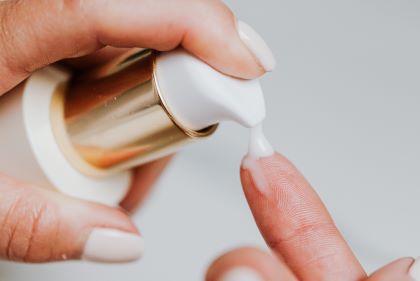Organic skincare products have gained popularity in recent years, as people seek natural alternatives to traditional cosmetics. While organic skincare offers numerous benefits, it’s essential to be mindful of certain ingredients that may be harmful or cause adverse reactions. Let’s explore a list of organic skincare ingredients to avoid to make informed choices for healthier and safer skincare routines.
-
Parabens: Preservatives with Risks
Parabens, such as methylparaben and propylparaben, are commonly used in skincare products to prevent bacterial growth and prolong shelf life. However, studies have linked parabens to hormone disruption, skin irritation, and even breast cancer. Look for paraben-free alternatives or products preserved with natural alternatives like grapefruit seed extract or rosemary oil.
-
Synthetic Fragrances: Hidden Chemical Cocktails
Fragrances may make skincare products more appealing, but many synthetic fragrances contain phthalates, which are known endocrine disruptors. They can cause allergic reactions, skin sensitivity, and respiratory issues. Opt for fragrance-free or products scented with natural essential oils to avoid potential adverse effects.
-
Sodium Lauryl Sulfate (SLS) and Sodium Laureth Sulfate (SLES): Harsh Cleansing Agents
SLS and SLES are surfactants commonly used in cleansers, soaps, and shampoos. While effective at removing dirt and oil, they can strip the skin of its natural oils, leading to dryness, irritation, and inflammation. Seek alternatives like coconut-derived surfactants or gentle cleansers that maintain the skin’s moisture barrier.
-
Mineral Oil and Petroleum Derivatives: Clogging Pores
Mineral oil, petrolatum, and paraffin are often used in skincare products as inexpensive emollients and moisture barriers. However, these ingredients can clog pores, leading to acne breakouts and skin congestion. Choose products formulated with plant-based oils, such as jojoba oil or argan oil, for superior hydration without the risk of pore blockage.
-
Synthetic Colors: Artificial Dyes to Avoid
Artificial colors, denoted as FD&C or D&C followed by a number, are added to skincare products for visual appeal. However, many synthetic colors are derived from coal tar and have been associated with skin irritation and allergies. Opt for products that use natural colorants, like beetroot extract or turmeric, to avoid potential adverse reactions.
-
Formaldehyde Donors: Preservatives with Risks
Formaldehyde donors, such as diazolidinyl urea, quaternium-15, and DMDM hydantoin, are commonly used in skincare products to prevent bacterial growth. However, they release small amounts of formaldehyde over time, which is a known human carcinogen and skin irritant. Look for formaldehyde-free alternatives like phenoxyethanol or benzyl alcohol.
-
Hydroquinone: Skin Lightener with Caution
Hydroquinone is a skin-lightening ingredient used to treat hyperpigmentation. However, it has been associated with potential skin toxicity and the development of ochronosis, a condition characterized by darkening and thickening of the skin. Consider natural alternatives like vitamin C, licorice root extract, or niacinamide for a safer approach to brightening the skin.

As the demand for organic skincare products continues to rise, it’s crucial to be aware of the ingredients to avoid for healthier and safer choices. By avoiding parabens, synthetic fragrances, harsh surfactants, mineral oil, synthetic colors, formaldehyde donors, and hydroquinone, you can minimize the risk of adverse reactions and long-term health effects.
When shopping for organic skincare products, always remember to read the ingredient labels carefully. Look for certified organic products that prioritize natural, plant-based ingredients and avoid potentially harmful additives. Additionally, consider conducting patch tests on a small area of your skin before incorporating new products into your routine to check for any adverse reactions.
It’s important to note that while these ingredients are commonly associated with potential risks, individual sensitivities and reactions can vary. If you have specific skin concerns or allergies, consult with a dermatologist or skincare professional for personalized advice and recommendations.
Ultimately, choosing organic skincare products with safe and beneficial ingredients can contribute to maintaining the health and vitality of your skin. By being informed and conscious consumers, we can prioritize our well-being while enjoying the benefits of a natural and sustainable skincare routine.
Remember, your skin deserves the best care possible, and avoiding potentially harmful ingredients is a step towards achieving that goal. Embrace the power of nature and make informed choices for your skincare journey.
